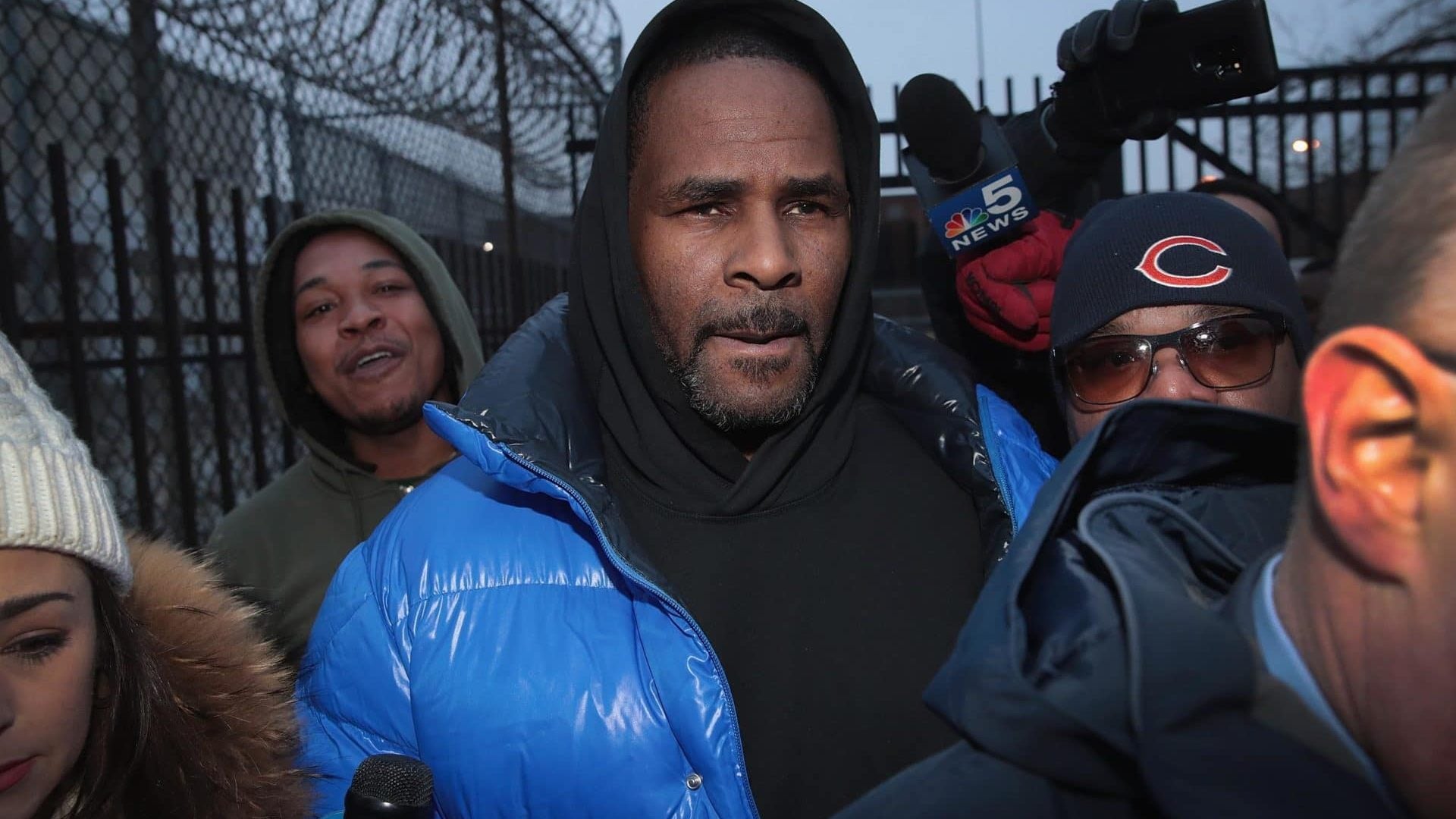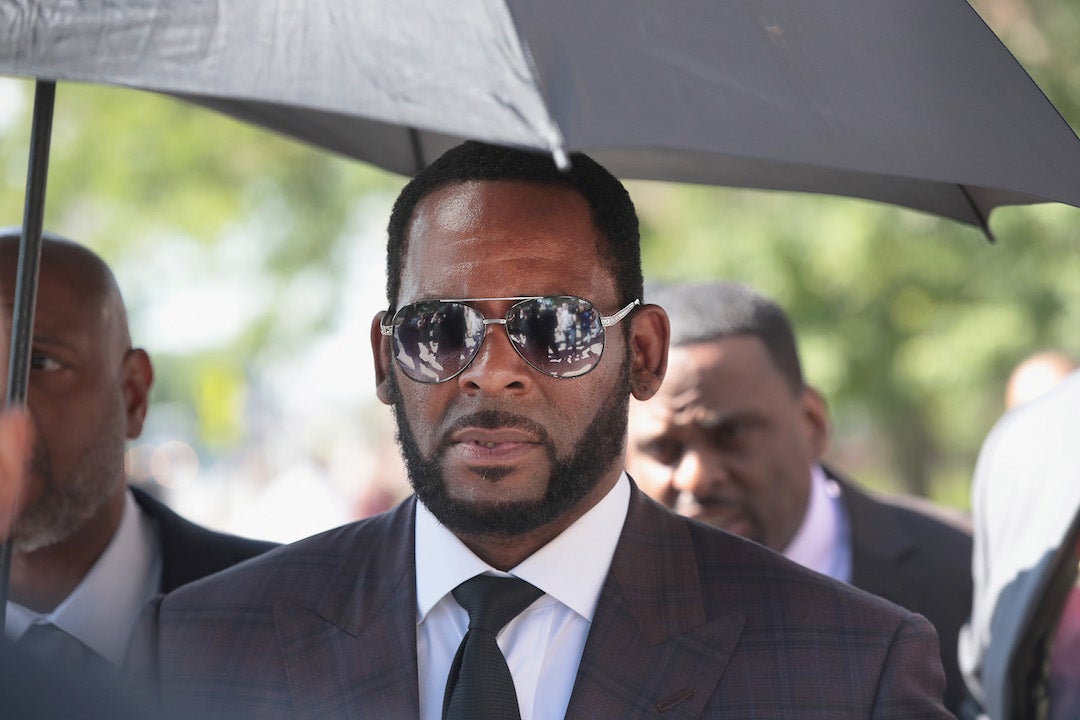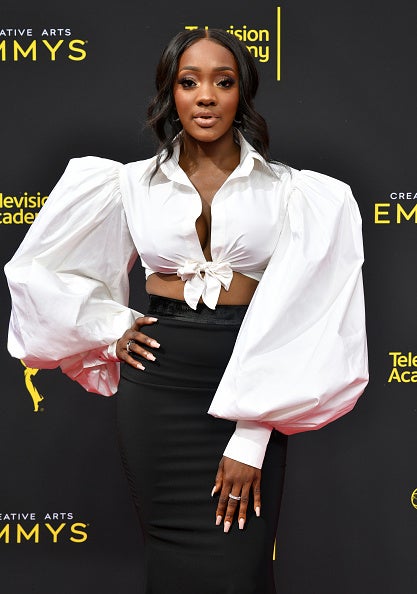
Often awards shows are summarized in two columns—wins and losses.
Lifetime’s Surviving R. Kelly may have been unable to secure a Creative Arts Emmy on the first night of the two-part event on Saturday, but it has succeeded at a greater feat.
The acclaimed docuseries succeeded in reminding us that television, like all art forms, can educate. TV can act as a healing balm for the creators and consumer, and TV can set the drum’s tempo for our forward march. Surviving R. Kelly did not leave the 71st Creative Arts Emmys with a statue but speaking with several of R. Kelly’s victims on the red carpet we learned what the documentary did give them.
Kelly didn’t merely avoid criminal convictions for his alleged decades-long reign of terror; he was able to dismiss allegations and charges as malicious rumors. His fans and the general public were aware of his reputation. Some watched the video of him allegedly urinating on an underage girl in 2002. Many read the articles in the Chicago-Tribune and Vibe magazine highlighting his illegal marriage to the then underage singer Aaliyah, whom he met when she was 12. And more still watched comedians like Dave Chappelle poke fun at Kelly’s history of assault.
Nine months ago, the cultural attitude towards the once-beloved “Pied Piper of RnB” shifted seemingly overnight.
“Not much has changed other than the world,” said R. Kelly survivor and documentary participant Lisa Van Allen on the red carpet in Los Angeles.
Van Allen came forward in 2008, several years after the national headline-making underage urination tape. Her story hasn’t changed. What has changed? The world’s willingness to believe Black and brown women is what’s changed. Lifetime’s Surviving R. Kelly premiered with 1.9 million viewers.

“Our goal was to help others… There’s power in numbers. Being alone back then, I think that made a difference. And now as they see there are more young ladies speaking out it was like, ok, well now we can do this. And I think social media had a lot to do with it. Stuff gets out to the masses a lot quicker,” Allen continued.
Social media is fertile ground for the #MeToo movement. The support provided by strangers who have survived assault has empowered countless women and men to come forward.
Social media’s relative anonymity offers a layer of protection for survivors who may need to share, but aren’t ready for the far-reaching implications of sharing their truth. The result? Those ignorant to the reality of assault survivors now have an opportunity to learn from survivor’s first-hand accounts. Social media is allowing survivors to hold space for one another and incidentally educating the masses in the process.
For R. Kelly survivor, Asante McGee, realizing she wasn’t alone was critical on her healing journey.
“For me knowing I wasn’t alone [was a game changer]. At first, I was embarrassed, and I thought I was the only one. And because I was as old as I was when I was abused by [Kelly], it was more about shame and worrying about what others would say. But as time has passed, I have grown a thicker skin. So, the naysayers don’t bother me anymore.”
Releasing the burden of their predator’s sins is just one of the many facets of healing the Surviving R. Kelly participants have discovered.
While on the red carpet, survivor Kitti Jones offered insight into her healing process. Jones relies on a mix of professional help, loved ones, and unflinching honesty.
“Get your healing through your therapist and people that you trust. You heal as you reveal. When you come forward, you’re healing in that process. We were able to do that, some of us, through just talking about it in the documentary, that was a healing process.”
The honesty of the survivors who participated in the docuseries has helped many silently suffering feel seen. The women of Surviving R. Kelly are no longer individual women navigating abuse or a group of women using the full power of their voice. Now they are symbols of life after trauma to others who have endured similar fates. Too often stories of assault focus exclusively on the cruelty experienced by the victim, with little thought to what follows. They represent what is waiting for assault and trauma survivors on the other side, once they’ve reclaimed their time, their narrative, and addressed their hurt.
“I forget sometimes, you know? So, I’ll be in the airport or somewhere, and someone will come up and hug me, and I’m like, ‘what did I do?’ And then I have to remember my face was plastered on national TV and [over 6] million people saw it. It touched a lot of people. I’m happy that I was able to help so many women and men come forward and start those conversations that people wanted to take to their graves,” Jones shared.

Despite the cruelty shown them by Kelly the survivors are united in their desire for him to seek help. Faith Rodgers echoes these sentiments on the red carpet, even though she isn’t confident Kelly will use his time behind bars to rid himself of his alleged predatory habits.
“When a person doesn’t think that they’re wrong, you can’t make them get help. But hopefully, now that this kinda is a thing and it kinda is a thing, and you’re forced to get help. So, I definitely hope that he does seek help.”
Surviving R. Kelly may not have won an Emmy, but as far as consolation prizes healing has to be one of the best.
